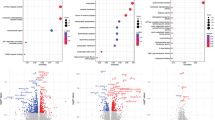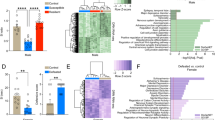Abstract
Several genetic studies have shown an association between the 5-HT1A receptor gene (HTR1A) and major depressive disorder (MDD); however, results have been rather inconsistent. Moreover, to our knowledge, no association study on HTR1A and MDD in the Japanese population has been reported. Therefore, to evaluate the association between HTR1A and MDD, we conducted a case–control study of Japanese population samples with two single-nucleotide polymorphisms (SNPs), including rs6295 (C-1019G) in HTR1A. In addition, we conducted a meta-analysis of rs6295, which has been examined in other papers. Using one functional SNP (rs6295) and one tagging SNP (rs878567) selected with the HapMap database, we conducted a genetic association analysis of case–control samples (331 patients with MDD and 804 controls) in the Japanese population. Seven population-based association studies, including this study, met our criteria for the meta-analysis of rs6295. We found an association between rs878567 and Japanese MDD patients in the allele-wise analysis, but the significance of this association did not remain after Bonferroni's correction. We also did not detect any association between HTR1A and MDD in the allele/genotype-wise or haplotype-wise analysis. On the other hand, we detected an association between rs6295 and MDD in the meta-analysis (P(Z)=0.0327). In an explorative analysis, rs6295 was associated with Asian MDD patients after correction for multiple testing (P(Z)=0.0176), but not with Caucasian MDD patients (P(Z)=0.138). Our results suggest that HTR1A may not have a role in the pathophysiology of Japanese MDD patients. On the other hand, according to the meta-analysis, HTR1A was associated with MDD patients, especially in the Asian population.
Similar content being viewed by others
Log in or create a free account to read this content
Gain free access to this article, as well as selected content from this journal and more on nature.com
or
References
Kato, T. Molecular genetics of bipolar disorder and depression. Psychiatry Clin Neurosci 61, 3–19 (2007).
Levinson, D. F. The genetics of depression: a review. Biol Psychiatry 60, 84–92 (2006).
López-León, S., Janssens, A. C., Gonzalez-Zuloeta Ladd, A. M., Del-Favero, J., Claes, S. J., Oostra, B. A. et al. Meta-analyses of genetic studies on major depressive disorder. Mol Psychiatry 13, 772–785 (2008).
Lemonde, S., Turecki, G., Bakish, D., Du, L., Hrdina, P. D., Bown, C. D. et al. Impaired repression at a 5-hydroxytryptamine 1A receptor gene polymorphism associated with major depression and suicide. J Neurosci 23, 8788–8799 (2003).
Le Francois, B., Czesak, M., Steubl, D., Albert, P. R. Transcriptional regulation at a HTR1A polymorphism associated with mental illness. Neuropharmacology 55, 977–985 (2008).
Wu, Y., Xu, Y., Sun, Y., Wang, Y. F., Li, X., Lang, X. E. et al. Association between the serotonin 1A receptor C(-1019)G polymorphism and major depressive disorder in the northern Han ethnic group in China. Chin Med J 121, 874–876 (2008).
Zhang, K., Xu, Q., Xu, Y., Yang, H., Luo, J., Sun, Y. et al. The combined effects of the 5-HTTLPR and 5-HTR1A genes modulates the relationship between negative life events and major depressive disorder in a Chinese population. J Affect Disord 114, 224–231 (2009).
Neale, B. M. & Sham, P. C. The future of association studies: gene-based analysis and replication. Am J Hum Genet 75, 353–362 (2004).
Barrett, J. C., Fry, B., Maller, J. & Daly, M. J. Haploview: analysis and visualization of LD and haplotype maps. Bioinformatics (Oxford, England) 21, 263–265 (2005).
Albert, P. R., Lembo, P., Storring, J. M., Charest, A. & Saucier, C. The 5-HT1A receptor: signaling, desensitization, and gene transcription. Neuropsychopharmacology 14, 19–25 (1996).
Albert, P. R. & Lemonde, S. 5-HT1A receptors, gene repression, and depression: guilt by association. Neuroscientist 10, 575–593 (2004).
Dudbridge, F. Pedigree disequilibrium tests for multilocus haplotypes. Genet Epidemiol 25, 115–121 (2003).
Purcell, S., Cherny, S. S. & Sham, P. C. Genetic Power Calculator: design of linkage and association genetic mapping studies of complex traits. Bioinformatics (Oxford, England) 19, 149–150 (2003).
Mantel, N. & Haenszel, W. Statistical aspects of the analysis of data from retrospective studies of disease. J Natl Cancer Inst 22, 719–748 (1959).
DerSimonian, R. & Laird, N. Meta-analysis in clinical trials. Control Clin Trials 7, 177–188 (1986).
Arias, B., Arranz, M. J., Gasto, C., Catalan, R., Pintor, L., Gutierrez, B. et al. Analysis of structural polymorphisms and C-1018G promoter variant of the 5-HT(1A) receptor gene as putative risk factors in major depression. Mol Psychiatry 7, 930–932 (2002).
Neff, C. D., Abkevich, V., Packer, J. C., Chen, Y., Potter, J., Riley, R. et al. Evidence for HTR1A and LHPP as interacting genetic risk factors in major depression. Mol Psychiatry 14, 621–630 (2008).
Koks, S., Nikopensius, T., Koido, K., Maron, E., Altmae, S., Heinaste, E. et al. Analysis of SNP profiles in patients with major depressive disorder. Int J Neuropsychopharmacol/Official Scientific Journal of the Collegium Internationale Neuropsychopharmacologicum (CINP) 9, 167–174 (2006).
Parsey, R. V., Oquendo, M. A., Ogden, R. T., Olvet, D. M., Simpson, N., Huang, Y. Y. et al. Altered serotonin 1A binding in major depression: a [carbonyl-C-11]WAY100635 positron emission tomography study. Biol Psychiatry 59, 106–113 (2006).
Kato, M., Fukuda, T., Wakeno, M., Okugawa, G., Takekita, Y., Watanabe, S. et al. Effect of 5-HT1A gene polymorphisms on antidepressant response in major depressive disorder. Am J Med Genet B Neuropsychiatr Genet 150B, 115–123 (2009).
Shi, J., Badner, J. A., Gershon, E. S. & Liu, C. Allelic association of G72/G30 with schizophrenia and bipolar disorder: a comprehensive meta-analysis. Schizophrenia Res 98, 89–97 (2008).
Choi, M. J., Lee, H. J., Lee, H. J., Ham, B. J., Cha, J. H., Ryu, S. H. et al. Association between major depressive disorder and the -1438A/G polymorphism of the serotonin 2A receptor gene. Neuropsychobiology 49, 38–41 (2004).
Kishi, T., Kitajima, T., Tsunoka, T., Ikeda, M., Yamanouchi, Y., Kinoshita, Y. et al. Genetic association analysis of serotonin 2A receptor gene (HTR2A) with bipolar disorder and major depressive disorder in the Japanese population. Neurosci Res 64, 231–234 (2009).
Serretti, A., Artioli, P., Lorenzi, C., Pirovano, A., Tubazio, V. & Zanardi, R. The C(-1019)G polymorphism of the 5-HT1A gene promoter and antidepressant response in mood disorders: preliminary findings. Int J Neuropsychopharmacology/Official Scientific Journal of the Collegium Internationale Neuropsychopharmacologicum (CINP) 7, 453–460 (2004).
Lemonde, S., Du, L., Bakish, D., Hrdina, P. & Albert, P. R. Association of the C(-1019)G 5-HT1A functional promoter polymorphism with antidepressant response. Int J Neuropsychopharmacology/Official Scientific Journal of the Collegium Internationale Neuropsychopharmacologicum (CINP) 7, 501–506 (2004).
Arias, B., Catalan, R., Gasto, C., Gutierrez, B. & Fananas, L. Evidence for a combined genetic effect of the 5-HT(1A) receptor and serotonin transporter genes in the clinical outcome of major depressive patients treated with citalopram. J Psychopharmacol (Oxford, England) 19, 166–172 (2005).
Parsey, R. V., Olvet, D. M., Oquendo, M. A., Huang, Y. Y., Ogden, R. T. & Mann, J. J. Higher 5-HT1A receptor binding potential during a major depressive episode predicts poor treatment response: preliminary data from a naturalistic study. Neuropsychopharmacology 31, 1745–1749 (2006).
Hong, C. J., Chen, T. J., Yu, Y. W. & Tsai, S. J. Response to fluoxetine and serotonin 1A receptor (C-1019G) polymorphism in Taiwan Chinese major depressive disorder. Pharmacogenomics J 6, 27–33 (2006).
Yu, Y. W., Tsai, S. J., Liou, Y. J., Hong, C. J. & Chen, T. J. Association study of two serotonin 1A receptor gene polymorphisms and fluoxetine treatment response in Chinese major depressive disorders. Eur Neuropsychopharmacol 16, 498–503 (2006).
Kato, M. & Serretti, A. Review and meta-analysis of antidepressant pharmacogenetic findings in major depressive disorder. Mol Psychiatry (2008) (in press).
Bowden, C. L. Strategies to reduce misdiagnosis of bipolar depression. Psychiatr Serv (Washington, DC) 52, 51–55 (2001).
Kishi, T., Ikeda, M., Kitajima, T., Suzuki, T., Yamanouchi, Y., Kinoshita, Y. et al. No association between prostate apoptosis response 4 gene (PAWR) in schizophrenia and mood disorders in a Japanese population. Am J Med Genet B Neuropsychiatr Genet 147B, 531–534 (2008).
Kishi, T., Kitajima, T., Ikeda, M., Yamanouchi, Y., Kinoshita, Y., Kawashima, K. et al. Association study of clock gene (CLOCK) and schizophrenia and mood disorders in the Japanese population. Eur Arch Psychiatry Clin Neurosci 259, 293–297 (2009).
Kishi, T., Kitajima, T., Ikeda, M., Yamanouchi, Y., Kinoshita, Y., Kawashima, K. et al. Association analysis of nuclear receptor Rev-erb alpha gene (NR1D1) with mood disorders in the Japanese population. Neurosci Res 62, 211–215 (2008).
Kishi, T., Kitajima, T., Tsunoka, T., Ikeda, M., Yamanouchi, Y., Kinoshita, Y. et al. Genetic association analysis of serotonin 2A receptor gene (HTR2A) with bipolar disorder and major depressive disorder in the Japanese population. Neurosci Res 64, 231–234 (2009).
Acknowledgements
We thank Ms M Miyata and Ms S Ishihara for their technical support. This work was supported in part by research grants from the Ministry of Education, Culture, Sports, Science and Technology, the Ministry of Health, Labor and Welfare, and the Japan Health Sciences Foundation (Research on Health Sciences focusing on Drug Innovation).
Author information
Authors and Affiliations
Corresponding author
Rights and permissions
About this article
Cite this article
Kishi, T., Tsunoka, T., Ikeda, M. et al. Serotonin 1A receptor gene and major depressive disorder: an association study and meta-analysis. J Hum Genet 54, 629–633 (2009). https://doi.org/10.1038/jhg.2009.84
Received:
Revised:
Accepted:
Published:
Issue date:
DOI: https://doi.org/10.1038/jhg.2009.84
Keywords
This article is cited by
-
The effect of negative life events on college students’ depression: the mediating role of internet addiction and the moderating role of 5-HTT1A gene rs6449693 polymorphism
Current Psychology (2023)
-
Serotonergic gene polymorphisms (5-HTTLPR, 5HTR1A, 5HTR2A), and population differences in aggression: traditional (Hadza and Datoga) and industrial (Russians) populations compared
Journal of Physiological Anthropology (2018)
-
The role of 5-HT receptors in depression
Molecular Brain (2017)
-
5-HT1A Autoreceptors in the Dorsal Raphe Nucleus Convey Vulnerability to Compulsive Cocaine Seeking
Neuropsychopharmacology (2016)
-
The functional serotonin 1a receptor promoter polymorphism, rs6295, is associated with psychiatric illness and differences in transcription
Translational Psychiatry (2016)



